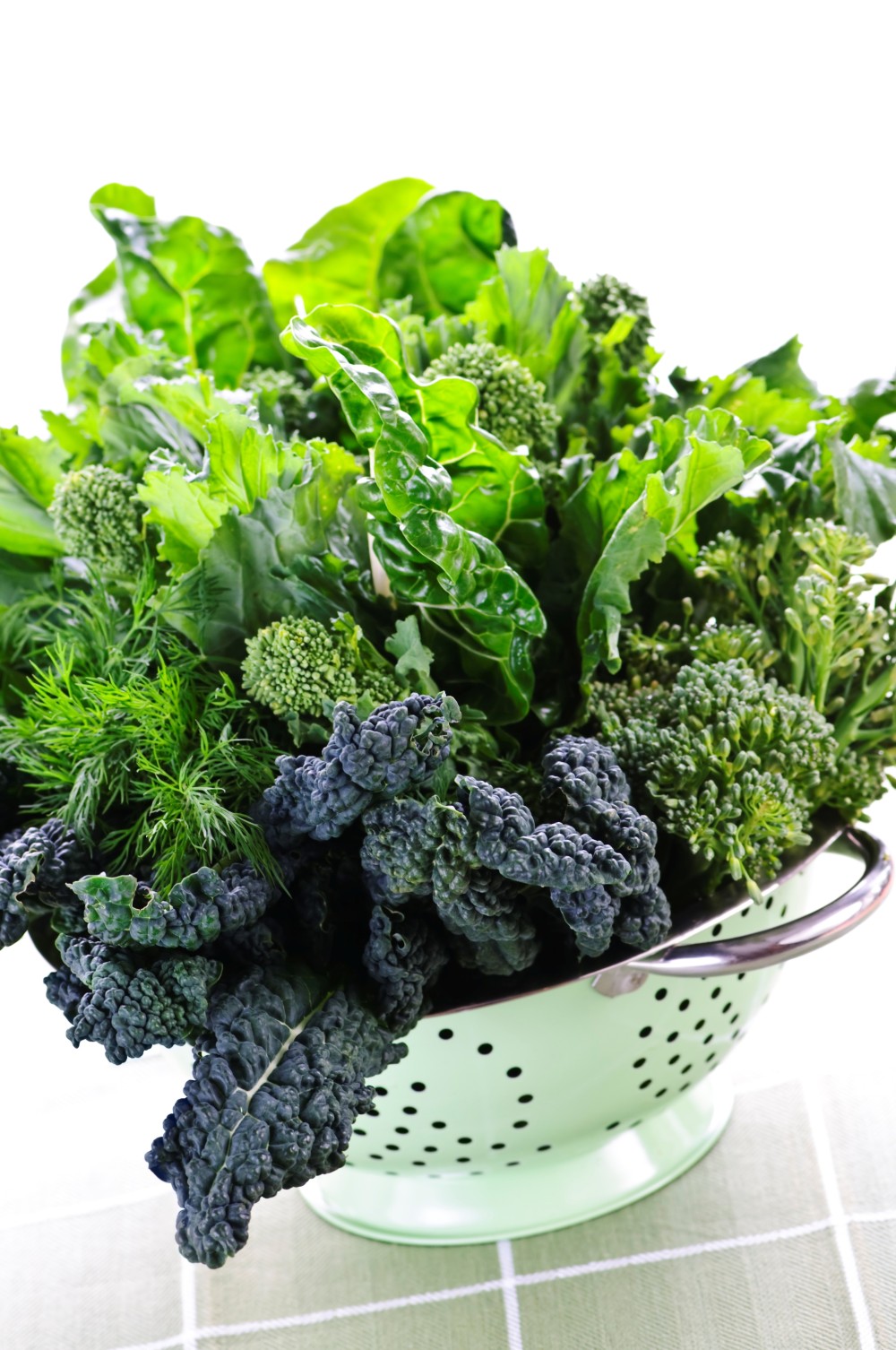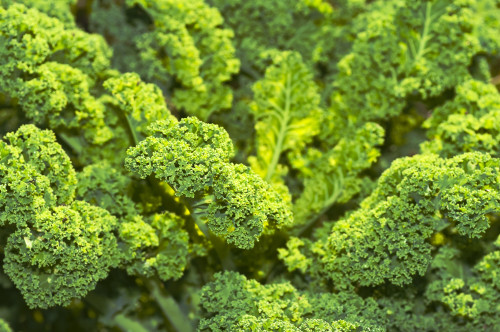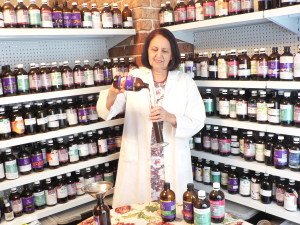
It is well-known fact that compounds called goitrogens can interfere with the normal function of the thyroid gland, preventing the incorporation of iodine into the hormones the thyroid gland produces. What is mean that an excessive consumption of plants containing goitrogens suppresses the thyroid function. Such goitrogenic compounds are found in certain cruciferous vegetables.
What are the cruciferous vegetables?
We eat them all the time; raw in moderation or, cooked, steamed or stir fried. These are red raddish, broccoli, kohlrabi, garden cress, kale, rocket, watercress, Chinese broccoli, cabbage, sour kraut, choy sum, mizuna, senposal, red giant mustard, pak choy, black mustard, Japanese turnip, broccoli rab, tatsoi, horseradish, Chinese cabbage, komatsuna , white mustard and wasabi.
It has been assumed by many (including clinicians) that all cruciferous vegetables are equally goitrogenic. This is not the case.
Beware of Kale

raw kale should never be juiced
Kale is very popular in these days however kale is very high in progoitrins, increasing the risk of thyroid dysfunction (See Table in the attachment). The popular trend of juicing kale is a practice which puts a consumer at significant risk of thyroid dysfunction, especially if dietary iodine intake is low. Kale has the highest level of goitrogens after broccoli. Therefore, kale should never be juiced, or eaten raw consumed as a powder, capsule or any supplement.
There is an increased number of people with underactive and overactive thyroids and the” trendy” consumption of raw kale can have serious health consequences. If you want to consume kale please cook it or steam it first and eat in moderation.
If you would like to know more how natural medicine can help you, please contact Danuta Hulajko on 02 4854 0205
 Danuta Hulajko is a holistic practitioner, international speaker, the founder and the practitioner at the DH Natural Medicine Clinic and www.healingremedies.com.au , Sydney. She specialises in anti-aging, autoimmunity, thyroid conditions, digestive disorders and heavy metals chelation. For more information please go to our website. You can follow Danuta Hulajko work, events, seminars, expos, latest health research, her health tips and advice on Facebook and LinkedIn
Danuta Hulajko is a holistic practitioner, international speaker, the founder and the practitioner at the DH Natural Medicine Clinic and www.healingremedies.com.au , Sydney. She specialises in anti-aging, autoimmunity, thyroid conditions, digestive disorders and heavy metals chelation. For more information please go to our website. You can follow Danuta Hulajko work, events, seminars, expos, latest health research, her health tips and advice on Facebook and LinkedIn

